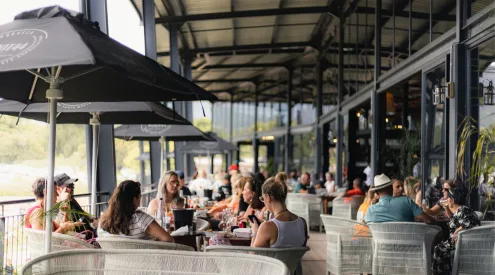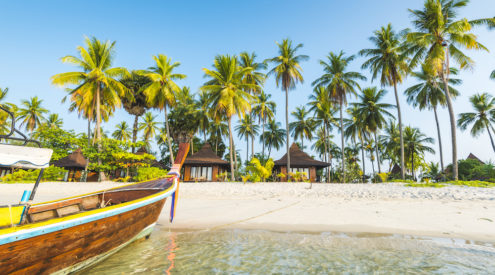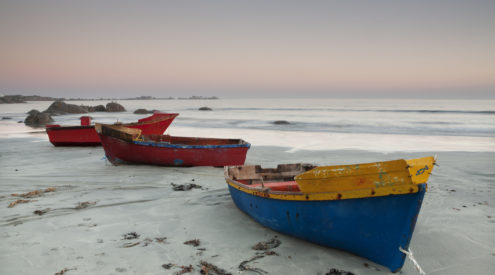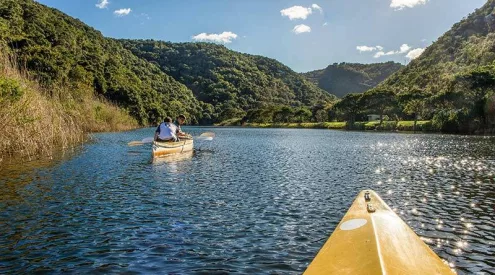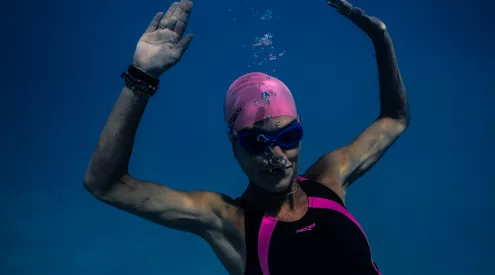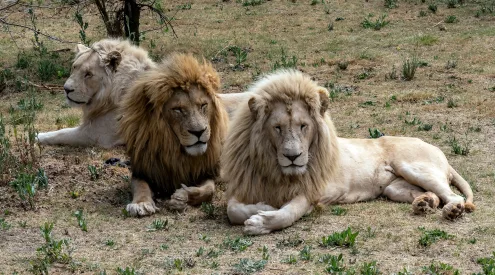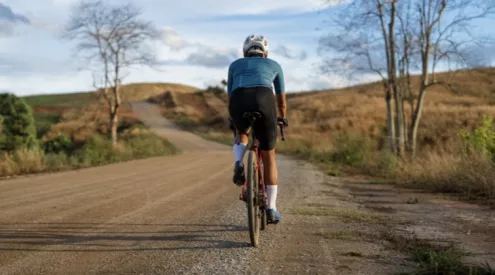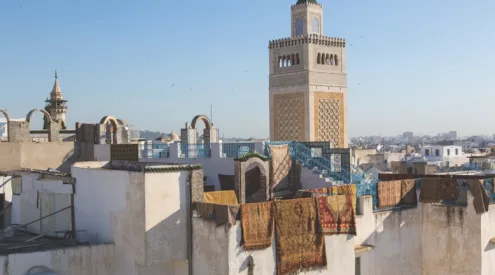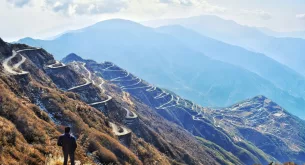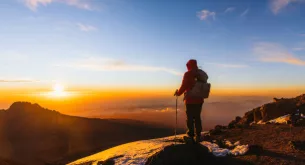I set off bright and early for Piton de la Fournaise, or, as the locals call it – Le Volcan – today. The volcano is one of the world’s most active, and it just stopped erupting on the day I arrived on the island.
I got completely lost on my way there and couldn’t find my way out of Ravine des Cabris (ravine of goats) or the charmingly named Le Tampon. After feeling silly asking a couple of people where Le Volcan was (how often do you ask people on the side of the road how to get to the volcano?) I eventually made it to the winding road that led to Piton de la Fournaise.
Reunion’s lanscape is so striking in that it can change just about every kilometre. I drove through tropical towns fringed with banana trees, coconut palms and neon-pink bougainvillia, alpine scenes of serene cows grazing on lush grass under fir trees and rocky hills covered in fynbos-like scrubs.
Eventually I reached the Plaine des Sables, a vast plain of dark red ashes. It’s a pretty eerie landscape that looks like something from a movie set in Mars. The road wound down into the plain and continued to the edge of the volcanic crater.
I had seen photos of Le Volcan, but there’s nothing like actually experiencing this dramatic place. I couldn’t stop thinking about the raw power of this volcano creating this entire island. It’s pretty awesome, in the proper sense of the word.
I didn’t have time to hike to the epicentre (if that’s the right word) of the volcano, but I did head down into the outer crater, called Enclos Foucque. I followed the trail of people, who looked like ants from above, down the 500 or so steps into the crater. It was kind of an other-wordly experience. I walked across solidified lava, which had hardened in waves and crushed volcanic rocks that reminded me of that Grape Nuts cereal. The crater is pretty epic – it’s massive, barren and
I had worked up a bit of an appetite on my short hike so I headed down to St Pierre, a chilled out coastal town, for lunch. I parked my car on a side road (a parallel parking that took me about 10 minutes, with a queue of cars building up behind me) and went in search of carri.
In my quest for lunch, I got sidetracked by a tourist market (I can never say no to shopping, even when hungry). This market was probably the nicest I’ve ever been to in Africa because I didn’t get hassled once. The only time someone spoke to me was when I bought something (a hollowed out coconut shell) and then it was because she wanted to explain how to use it (the shell can apparently keep ice-cream cold at 0 degrees. Bit sceptical about that). If I’d had more Euros, I could have bought a lot of stuff – there was beautiful, delicate lace, colourful woven baskets and hats, some cool painted TinTin boxes and packets of interesting looking spices. I ended up leaving with just the coconut and a thick bunch of sticky, fragant vanilla pods.
After checking out a couple of places for curry, a dreadlocked dude in a health restaurant advised me to check out La Detente, a locals’ spot in a parking lot. It was good advice. I sat in front of a whirring fan amongst old men drinking red wine (only in France).
My tuna curry with lentils and a seriously fiery rougail was deliciously spicy and very tummy-filling. It was 30 degrees and really humid though, so the curry got me sweating like I was in a hot yoga class (that’s really sweaty, if you haven’t done hot yoga before). Cooling down came in the form of a large cashew nut ice-cream from the ice-cream parlour across the road. Feeling almost like I was on a beach holiday, I wandered down to the seafront, happily licking my tasty ice-cream.
Pumping Bollywood tunes led me to a Diwali festival on the seafront boulevard. Schoolgirls in bejewelled saris were showing off some sophisticated dancing moves on stage while their parents clapped and some tiny children tried to emulate them. After feeling like a bit of a paedophile taking photos of the dancing girls, I wandered through the festival’s stalls, which were selling Indian sweets, Hindu statues, saris, incense, yoga workshops, Bollywood music and movies and Ayurvedic herbal treatments.
I came to the end of the stalls and sort of stumbled onto the beach, which was rather lovely, with a wide stretch of sand and calm sea. Guidebooks go on about how Reunion’s beaches aren’t great, but I think it’s just because they are comparing them to Reunion’s neighbours the Seychelles and Mauritius. As beaches go, Reunion definitely has some good ones.
I sat down for a moment and consulted le guidebook, which advised a visit to St Pierre’s cemetery to see the grave of La Sitane, an African sorcerer. According to the guidebook, people who practise gris gris (black magic) perform their dark rites on La Sitane’s grave, and leave him offerings of decapitated roosters. This all sounded rather exotic and exciting to me, so I made my way along the seafront to the cemetery.
I couldn’t find the grave, so I asked a guy painting gravestones where it was. He gave me a strange look and told me that the name La Sitane must never be said aloud. I guess it’s the same kind of deal as the Voldemort thing – dark wizard etc. A lady gathering dead flowers from graves was more helpful and pointed me in the right direction.
La Sitane’s grave is painted a garish toenail-red which sticks out among the grey tombstones of the cemetery. Disappointingly, there were no animal carcasses on his grave, just smoked cigarettes with their rolls of ash intact, cups and bottles of rum, water, flowers and incense. Like the cemetery outside St-Leu, this one made me think about Reunion’s inclusiveness. I doubt you would see a black magic sorcerer’s grave in another other Catholic cemetery in the world. If I’m wrong, please do let me know.
I spent awhile wandering around the cemetery, working out family histories from engraved tombstones and breathing in the heady tropical fragrances of frangipane flowers and incense.
I wished I had more time to spend in St Pierre – it’s a lovely little town of relaxed beach holiday vibes, full of cafes, beachside bars, and bistros. I had an appointment with the rum museum though.
After somehow finding my way to everything on the island that was on my itinerary, I was feeling pretty confident about my map skills (which my boyfriend would contend are pretty crappy). However, the place that the rum museum was in wasn’t actually on my map, which made it pretty hard to find. I drove around and around coming off the highway and going back on to try and find this place, but to no avail. I’ll have to visit it on my next trip to Reunion.
Driving back to St-Denis along the coastal highway, I felt sad to be leaving this beautiful little island. Then I got stuck in terrible traffic jams in St-Denis and was hooted at by what sounded like 20 cars when I turned into the wrong lane while turning left at a huge intersection.
After being utterly boring and not going out for the past two nights I had decided I was going to take myself out for dinner in St-Denis but when I got back to the hotel I got stuck into editing my photos and so I ordered room service (a cheese and basquaise omelette with frites) instead. It wasn’t a particularly exciting end to my stay in Reunion, but then I just couldn’t wait to look at my photos of the beautiful island.
The next day I spent a minute rejoicing in my car when I managed to drop it off at the rental place with no scratches (this really is a big deal for me – I am the world’s worst parker).
Sitting in the little airport, surrounded by people drinking great-smelling coffee and eating croissants, I was sad to be leaving this tiny little chunk of France. I was even sadder when I spotted an army guy patrolling the airport wearing an unbelievably camp outfit of tight camo hot pants, knee-length socks and a figure-hugging camo shirt, because I didn’t have time to get my camera out and get a photo of him. This reaffirmed my resolve to return to Reunion. That, and the fact that I only had enough Euros left at the airport to buy two bottles of Incredibly Strong Rum.
Reunion, I shall return.


